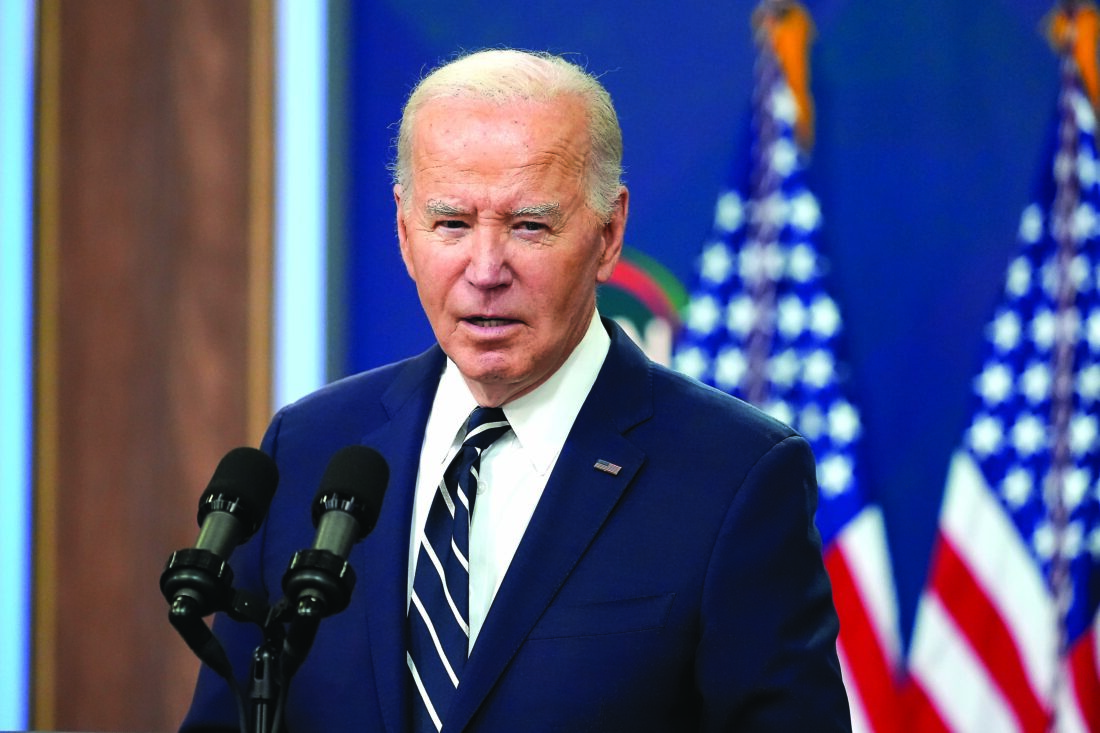The ongoing drama over whether President Joe Biden’s name will be on Ohio’s fall ballot has become intertwined with a partisan squabble over a proposal to keep foreign money out of state ballot campaigns. This political turmoil follows last year’s controversy over Swiss billionaire Hansjörg Wyss’s financial involvement in a successful campaign to enshrine abortion rights in the red state’s constitution.
Republican Secretary of State Frank LaRose proposed legislation to ban foreign nationals from contributing to ballot campaigns. However, the effort to implement this change has become a sticking point in solving a separate issue: an early August ballot deadline that affects whether Biden will appear on Ohio’s ballot, given that the Democratic National Convention takes place just days after that deadline.
Despite general agreement among all political leaders that Biden will eventually make it onto the ballot, the pathway and timing are still unclear. Republican Senate President Matt Huffman, in an attempt to address the ballot deadline and push through his ban on foreign contributions, combined the measures into a single bill that also included provisions allowing candidates to use campaign funds for child care. While the Senate passed the combined measure along party lines, Democrats decried the maneuver as a “dirty trick” and the “worst kind of politics.”
House Speaker Jason Stephens, a Republican who relies on Democratic support to maintain his leadership position, had been working on a different solution. His approach involved a straightforward bill to extend the deadline to August 23, the day after the Democratic convention, with a long-term plan to adjust ballot deadlines in future years when party conventions fall less than 90 days before the election.
However, the House plan stalled after informal approval, and when Stephens refused to call a vote on the Senate’s bill, the chamber descended into chaos. Some Republicans booed and jeered, shouting “Shame!” at their colleagues. LaRose publicly criticized the House’s inaction, suggesting that the Democrats were more interested in protecting foreign billionaires funding Ohio’s elections than ensuring their own presidential candidate was on the ballot. He noted that an emergency vote could still resolve the issue, requiring a two-thirds majority for immediate effect.
LaRose further escalated the rhetoric by naming Wyss in his statement, suggesting that Democrats’ reliance on Wyss’s “dark money” was the reason for Biden’s predicament. This prompted an angry response from State Sen. Bill DeMora, a Columbus Democrat, who accused LaRose of politicizing his office and siding with right-wing extremists instead of solving the issue. He argued that the real problem was Republican infighting and unconstitutionally gerrymandered maps.
Despite the turmoil, there’s still time for a resolution before the ballot deadline. However, the partisan conflict and internal disputes among Ohio’s Republican leaders have cast uncertainty over how and when this problem will be resolved.















































